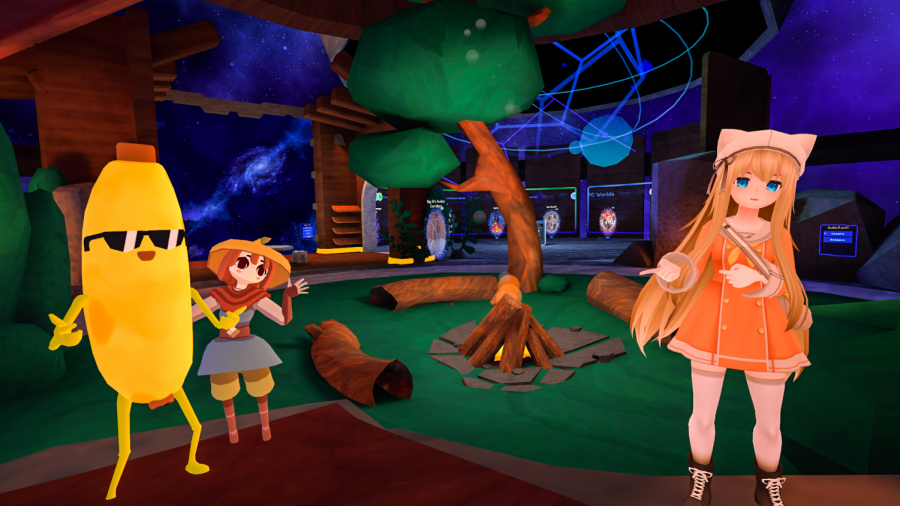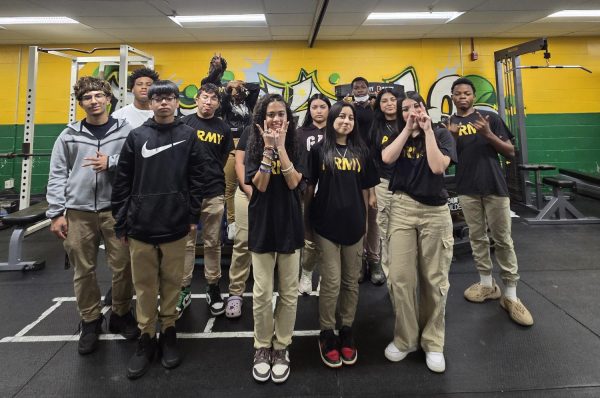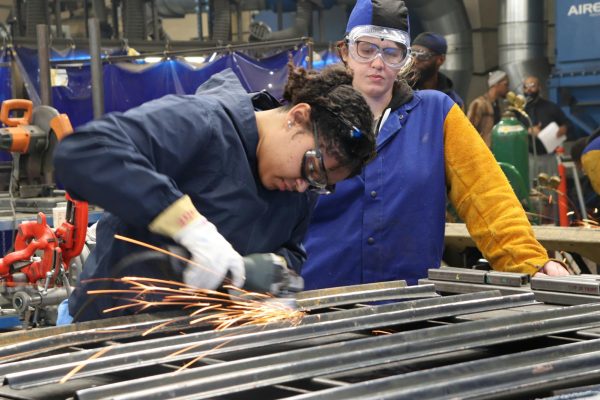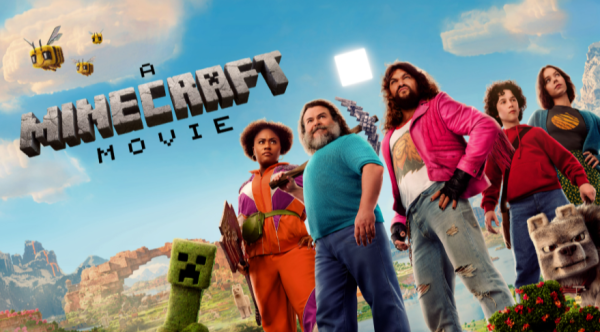Social games serving as human interaction replacement amidst lonely, locked up world
Sophomore Jose Aguilar is one of thousands of students who has spent the entirety of the current school year taking classes at home. To him, this means that he has been physically separated from all of his schoolmates for an entire year.
“The pandemic has cut me off from hanging out with any of my friends,” Aguilar stated. “So when I found a way to take the boys out to have fun, I took action.”
Deciding that he had spent way too much time away from his friends, he recently took two of his friends on a midnight trip to a McDonald’s. His friends showed up dressed up as a disco ball with limbs, and a human-form eight ball. This trip lacked any actual physical interaction, and was done virtually inside a social game known as VRChat.
Instances like this: where people choose to hang out with each other within a game, are becoming more and more popular and frequent amongst those who have grown tired of our lack of social interaction during lockdown, and these social games provide the exact thing we are looking for.
These types of games, with a focus of interacting with other people, have existed for decades now, with one of the earliest social “games” coming out in 2003 under the name Second Life. The developers of Second Life have specifically stated it is not a game, but many of its core concepts have been picked up and implemented by modern social games.
Two modern social games that stand out in terms of their popularity and community are the aforementioned VRChat and RecRoom. Both are highly accessible and successful social games characterized by player interaction, virtual worlds to explore, virtuals avatars to use, and user-generated content. RecRoom has grown to the point of being ported onto consoles and mobile devices, and VRChat has garnered a substantial presence on YouTube and Twitch. (Check out our article on the popularity of Twitch as well)
It should be noted that while VRChat and RecRoom are referred to as games, they are more like platforms; more akin to something like Roblox as opposed to a more standard game such as Among Us.
While both of these games have had established player bases, they have seen substantial growth over the course of the lockdown. A tweet from February of this year from a designer at RecRoom said, “We saw 1M *new* Quest users in the past 3 months.”
The Quest is a headset for virtual reality, which is still a somewhat niche market. Having this many users coming from that niche market is a testament to the popularity of the game.
It is also important to remember that RecRoom has also been ported to consoles and even mobile devices, and then it becomes clear that there are millions of new players joining the game in just the past three months, and that’s just those who choose to play RecRoom over alternatives.
It makes sense that in a world where there are limitations imposed on every type of social gathering people would rather get their fill of human interaction through other methods; methods that aren’t subject to virus concern or limitations.
Forget McDonald’s, if you really wanted to, you and your friends could compete in basketball, take a trip to the moon, or enjoy some time on the beach, all the while being in the comfort of your own home.
RecRoom has avatar customization, but VRChat has a far more developed system for it. This means your trip to the moon could be accented with the flair of the appearance of an astronaut, or a lamppost.
While these features make for a social experience, which some may even say is better than actually interacting with someone in real life, once the world opens up again there will be a drop in the player base of these games.
However, while currently these games are only temporarily serving as replacements for reality, their infinite potential for entertainment and social interaction will continue to draw more and more people in even after the world has returned to its normal, unrestricted state.
Your donation will support the student journalists of Parkdale High School. Your contribution will allow us to cover our annual website hosting costs and publish some printed editions, as well.

This is sophomore Jesus Benitez, current reporter for The Paw Print. Strong-armed into joining the team, he has made the best of his situation...












